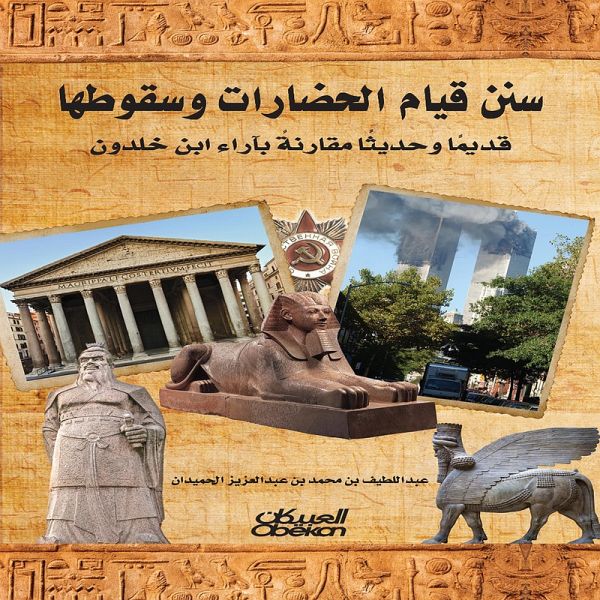
The Rise and Fall of Civilizations: Ancient and Modern, with the Views of Ibn Khaldun (eBook, ePUB)

PAYBACK Punkte
0 °P sammeln!
Understanding the laws of the rise and development of states and civilizations, and their subsequent fall in the ancient and modern eras, provides us with a model and example for understanding the causes of strength that contribute to the stability of states and protect them from the weakness that could lead to their disintegration and loss. Ibn Khaldun was ahead of his time and established the laws of the rise and fall of civilizations, which have proven to be still valid for explaining the rise and fall of states in the modern era. He focused on political, economic, and social factors as fun...
Understanding the laws of the rise and development of states and civilizations, and their subsequent fall in the ancient and modern eras, provides us with a model and example for understanding the causes of strength that contribute to the stability of states and protect them from the weakness that could lead to their disintegration and loss. Ibn Khaldun was ahead of his time and established the laws of the rise and fall of civilizations, which have proven to be still valid for explaining the rise and fall of states in the modern era. He focused on political, economic, and social factors as fundamental factors in the rise and development of civilizations, and subsequently their weakness, collapse, and downfall. In the present era, the intense disputes between rulers and the ruled, and the dissipation of the concept of the social contract as a means of governing the relationship between rulers and the ruled for political, economic, and social reasons, have all contributed to the causes of their downfall and collapse, overshadowing all other factors and posing a direct threat to states in the modern era. The development of Islamic civilization was primarily based on spiritual and humane foundations, and on the principles of consultation, justice, equality, freedom, self-control, and the encouragement of work and diligence. The book concludes with a comparative analytical application of civilizations, a roadmap for the rise and fall of a new Islamic civilization, and proposals for anticipating contemporary patterns of civilizations' rise and fall. It also draws lessons learned from these practices, with the aim of strengthening the causes of revival and utilizing them to revive Islamic civilization, given its potential for advancement. The world today is in dire need of a return to Islamic civilization with its principles, teachings, commands, and prohibitions, given its role in instilling spiritual and moral values ¿¿in people, in accordance with the principles of solidarity, mutual support, and cooperation in righteousness and piety. Al-Obeikan 2017
Dieser Download kann aus rechtlichen Gründen nur mit Rechnungsadresse in A, B, BG, CY, CZ, D, DK, EW, E, FIN, F, GR, H, IRL, I, LT, L, LR, M, NL, PL, P, R, S, SLO, SK ausgeliefert werden.













